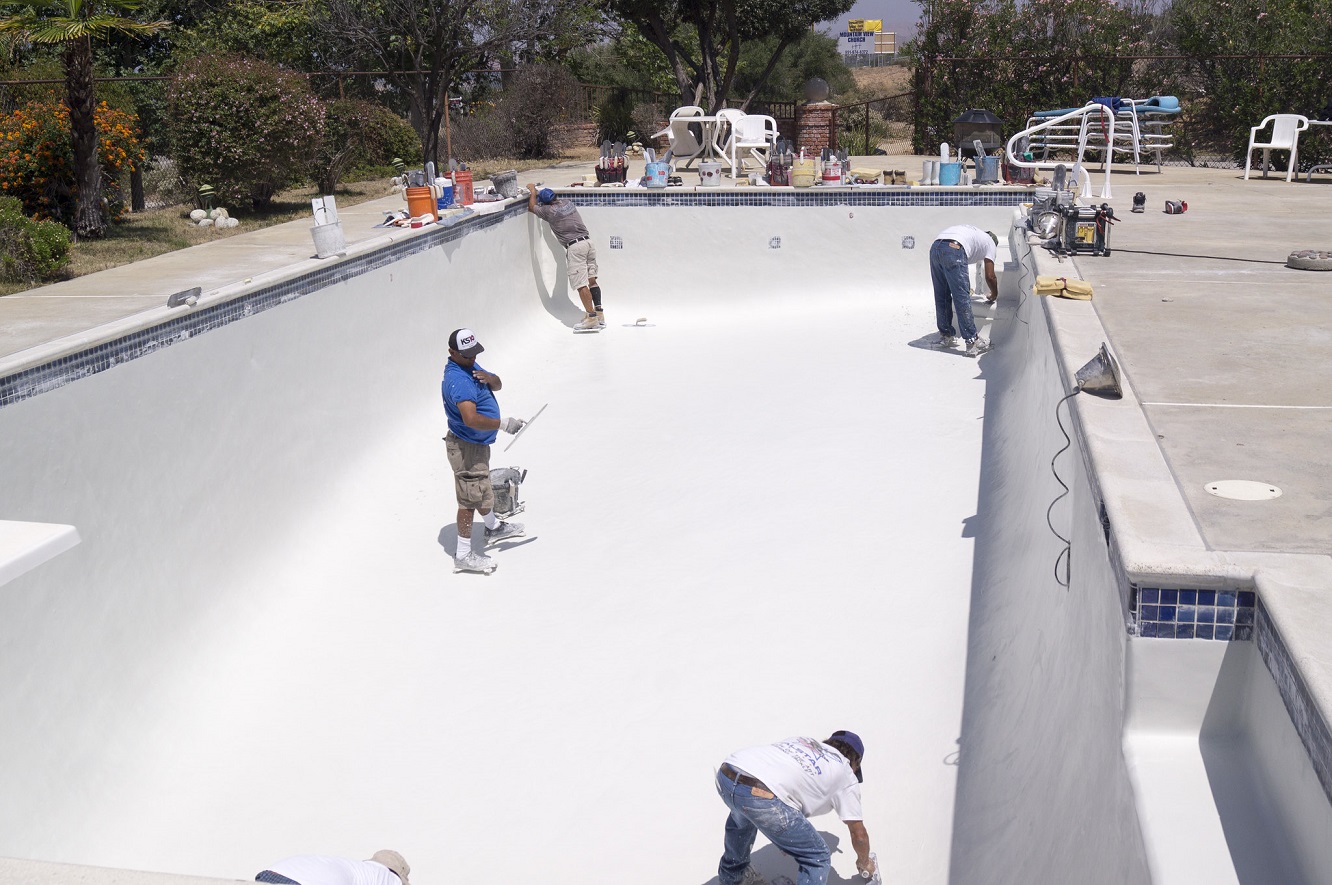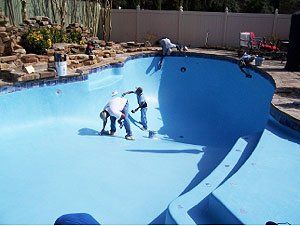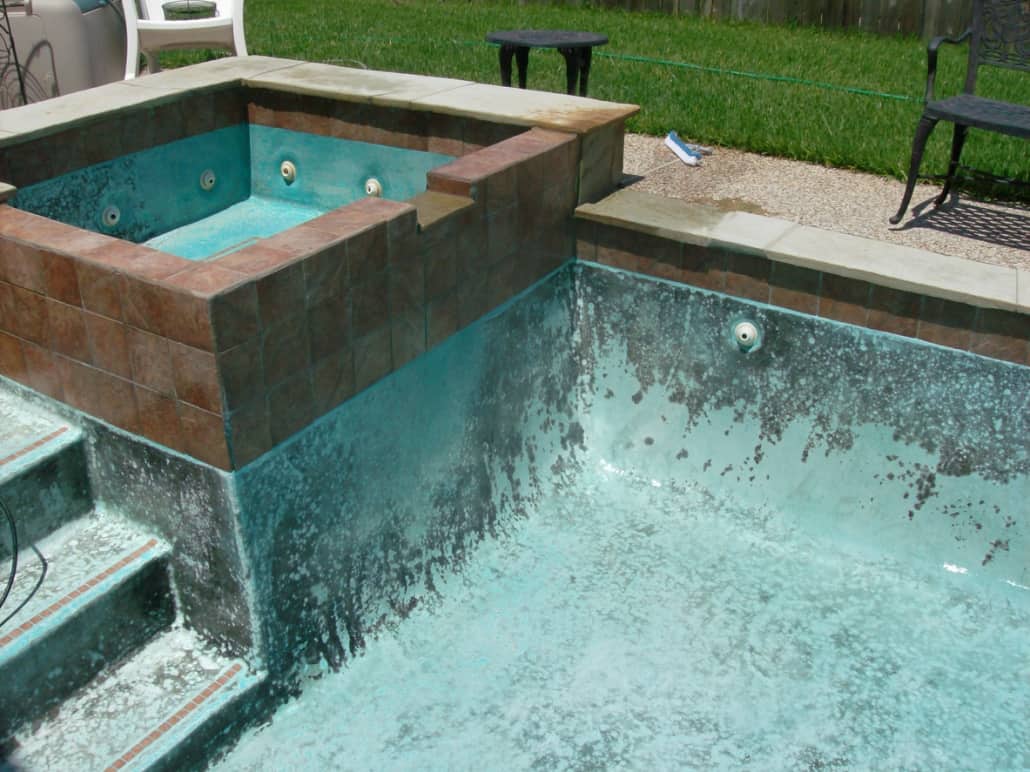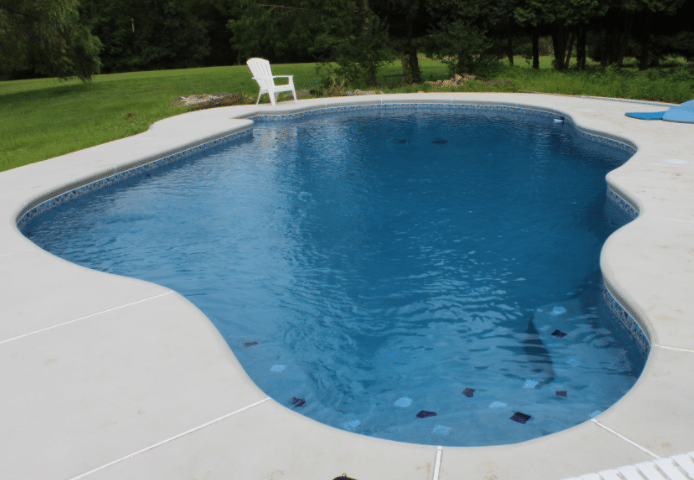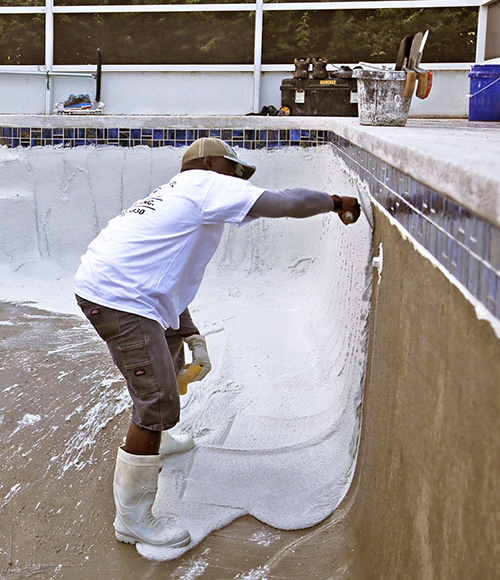The average gunite swimming pool will need replastering every seven to 12 years depending on the way in which it was installed and on how well it s been maintained.
Steps to replaster a pool.
The pool is checked for loose plaster which determines if we need to remove the plaster down to gunite or bond coat the surface of.
The cost of materials varies from 1 000 to.
First a saw cut with a diamond masonry blade is made to undercut the tile line to preserve the existing swimming pool tile unless new tile is being installed then the old tile is removed.
Tiles set in the pool floor like racing lines can be cut chipped on the edges or removed and new ones set in place 1 4in higher than the old tile use.
Acid washing is effective at removing stains from your pool but it can be used only to a certain extent.
Replastering a pool is certainly not a five minute job but that doesn t mean it s not a job you can diy.
After that you can make sure your plumbing and lighting components are in good working order and begin the process of applying the new surface material of your choice.
Over time even with excellent care you will notice the bottom of the pool will become rough bumpy and also sharp in certain areas.
The replaster pool process.
Steps to replaster a pool owning a pool is a big investment not only for your money but your time and energy to properly maintain its beauty for many years to come.
Speaking of tile if your pool steps or swimouts have trim tile laid flat or horizontally these are commonly chipped off and replaced for a more uniform and attractive appearance.
Reasons for replastering your pool aesthetic reasons.
Usually pool owners replaster their pool based on the look and feel.
Before we get into step by step instructions let s cover the basics.
Replastering is the process of adding a new layer of mortar over the entire interior surface of a concrete pool that already has an existing layer of plaster.
With the pool getting older for about 20 30 40 years in your household it requires a replastering process to bring back its true quality for you to enjoy in the pool.
Most of the pools are built with the material that is made up of the mixture of gunite cement sand and water.
One reason to replaster is cosmetics as it s possible for the walls of a pool to become discolored quickly.
The national average cost of resurfacing a pool is 6 500 and ranges from 1 000 to 100 000 including materials and labor labor charges vary from 45 to 65 an hour depending on the work involved and the location of the project.
First you ll want to gather all your needed materials which is no small task.
Most professionals can complete the project in 5 days for a total of 2 500 per project.
The first step is to strip the pool of its existing surface material.
Part 1 of 3.
Convinced that you need to replaster your pool but wondering what is involved.
